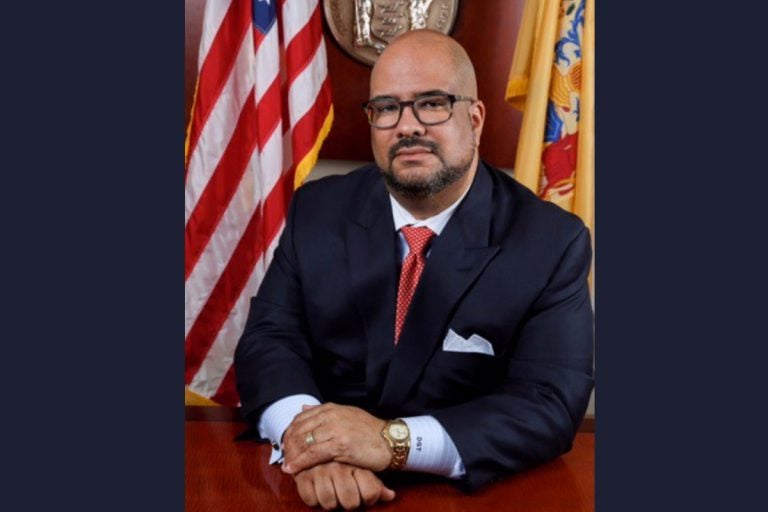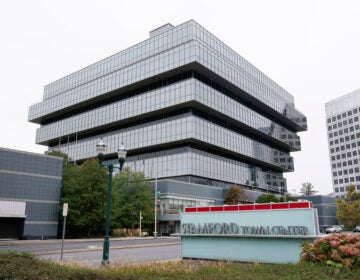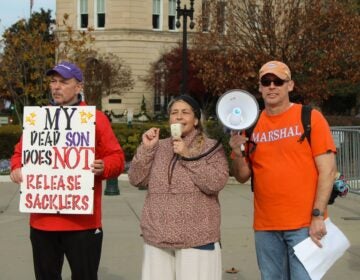Atlantic County ramps up drug-induced homicide prosecutions
By many metrics, Atlantic County is at the epicenter of the opioid epidemic in New Jersey. It saw its rate of overdose deaths double in 2016.

Atlantic County Prosecutor Damon G. Tyner. (Atlantic County Prosecutor's Office)
In an attempt to beat back a worsening opioid crisis, Atlantic County prosecutors are using a controversial New Jersey law to bring murder charges against people who had a hand in fatal drug overdoses.
Whether they sold the drugs that led to the overdose or helped manufacture them, people can face murder charges under New Jersey’s drug-induced death statute, which carries a 10- to 20-year prison sentence.
Law enforcement officials say going after all parties involved in a deadly overdose helps them disrupt narcotics markets and crack down on dealers selling dangerously toxic batches of drugs. Others say the aggressive approach acts as a deterrent for people considering joining the drug trade.
“It’s also very important because it gives the victims’ families an opportunity to get some closure,” said Atlantic County Prosecutor Damon Tyner. “They have the opportunity to hold someone accountable for that” death.
Since August, the Atlantic County prosecutor’s office has charged 13 suspects with drug-induced homicide, which has resulted in one conviction so far.
That is a major increase over previous years. Between 1988 — the year after the law was enacted — and 2016, the office brought only 16 drug-induced homicide charges.
New Jersey’s drug-induced death law was “underutilized for a period of time and kind of fell off the radar as a tool,” Tyner said. “Our decision to investigate overdoses as crimes was absolutely necessary … at this current stage of the battle.”
By many metrics, Atlantic County is at the epicenter of the opioid epidemic in New Jersey. It saw its rate of overdose deaths double in 2016, according to NJ Advance Media.
But according to Lindsay LaSalle, a senior staff attorney with the Drug Policy Alliance, there is no research to prove that drug-induced homicide laws deter people from selling or buying drugs.
“In my opinion, the only behavior that drug-induced homicide prosecutions actually deter is the seeking of medical assistance, because people are so afraid that they may be charged with murder or manslaughter,” she said.
LaSalle noted that New Jersey’s drug-induced homicide law was passed at the height of the war on drugs, when law enforcement responded to the crack-cocaine epidemic with tougher criminal penalties and harsher enforcement.
Today, New Jersey is one of about 20 states nationwide with specific drug-induced homicide laws, LaSalle said. States without targeted statutes often charge people involved in a fatal overdose with manslaughter instead.
Critics of drug-induced homicide laws have decried prosecutions of people who have sold drugs to an acquaintance or shared drugs with a friend who later died of an overdose.
But Tyner, the Atlantic County prosecutor, said his office evaluates each case individually to decide whether a drug-induced death charge is appropriate — and sometimes it is not. “There is no cookie-cutter solution,” he said.
WHYY is your source for fact-based, in-depth journalism and information. As a nonprofit organization, we rely on financial support from readers like you. Please give today.




